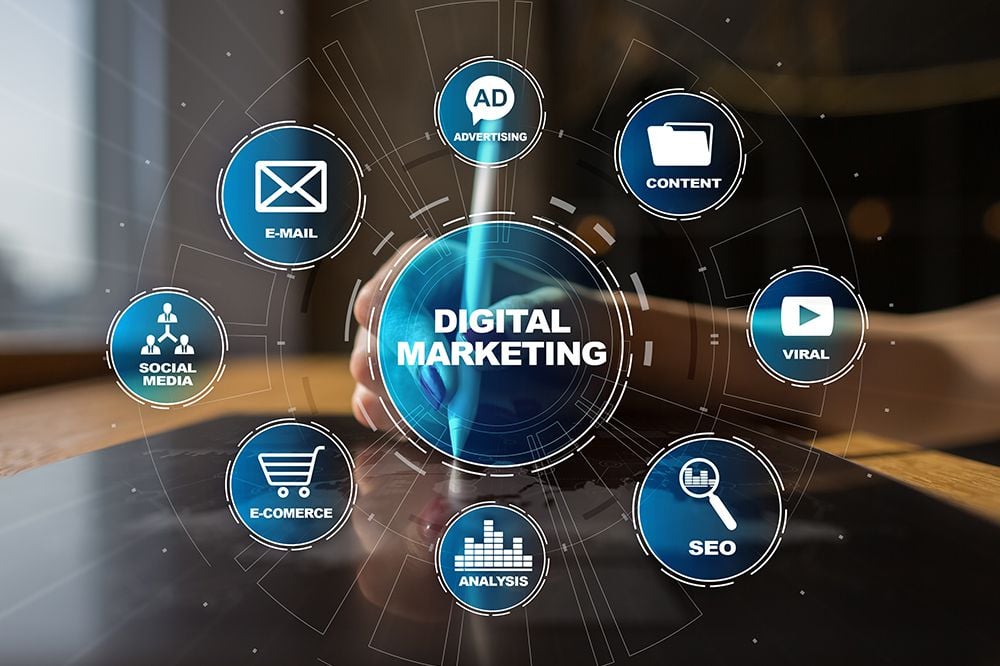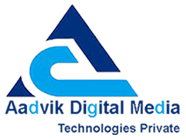[smartslider3 slider=”2″]

Our Services
The best feeling ever, When SEO experts are able to give you amazing SEO results. If You have the vision, You have come to the right digital marketing company.
Our Services
A range of cost-effective, scalable digital marketing solutions.

Paid Media Marketing
Market-leading paid social and search marketing across Meta, Google, Tik Tok and more, with record-breaking results for some of the biggest consumer brands in the world.

Analytics & GTM
Precise and compliant website analytics and tag management. We set up your analytics, install tracking codes, and take it to the next level with custom measurement .

SEO (Search Engine Optimisation)
Expert content strategy, link analysis and technical SEO audits, resulting in prioritised action lists to optimise your website for search engines.

Affiliate Marketing
Aadvik Digital Media’ connects you to your customers. Spectrum’s fast-growing digital platform serves clients from various business verticals, including e-commerce, etc.

Media Buying
One of the important marketing strategies is Media Buying, it enables ads to reach the appropriate audience. Spectrum is helping brands choose the ideal location.

Email Marketing
Perfect for ecommerce or building a relationship with your growing audience. We scale your email lead generation, develop campaign plans, and build a 24/7 marketing machine through smart email automation.
FAQ
Q: What is digital marketing?
A: Digital marketing encompasses all online strategies and techniques used to promote products or services, leveraging digital channels such as websites, social media, email, search engines, and more to reach and engage with target audiences.
Q: What are the key components of a digital marketing strategy?
A: A digital marketing strategy typically includes elements such as search engine optimization (SEO), content marketing, social media marketing, email marketing, paid advertising (PPC), and analytics. The combination and prioritization of these components depend on the specific goals and target audience of the business.
Q: How important is social media in digital marketing?
A: Social media plays a significant role in digital marketing as it provides a platform for businesses to connect and engage with their audience in real-time. It allows for direct communication, brand building, customer service, and targeted advertising, making it a crucial component of any digital marketing strategy.
Q: What is SEO, and why is it important in digital marketing?
A: SEO, or Search Engine Optimization, is the process of optimizing a website to rank higher in search engine results pages (SERPs) for relevant keywords and phrases. It is important because a higher ranking increases visibility, drives organic traffic, and improves the likelihood of attracting potential customers who are actively searching for products or services related to your business.
Q: What is web design?
A: Web design is the process of creating the visual layout, structure, and functionality of a website. It involves designing elements such as layout, color scheme, typography, navigation, and user experience create an aesthetically pleasing and user-friendly website.
Q: Why is responsive design important in web design?
A: Responsive design ensures that a website adapts and displays correctly on various devices and screen sizes, including desktops, laptops, tablets, and smartphones. It is crucial for providing a consistent and optimal user experience across different platforms, improving usability, and increasing accessibility for all users.
Q: What are some best practices for web design?
A: Some best practices for web design include prioritizing user experience, ensuring fast loading times, using clear and intuitive navigation, maintaining consistency in design elements, optimizing for mobile devices, implementing responsive design, optimizing for search engines (SEO), and regularly updating and testing the website for performance and usability.
Q: How can businesses ensure their website is accessible to all users?
A: Businesses can ensure website accessibility by following guidelines such as the Web Content Accessibility Guidelines (WCAG), which provide standards for making web content more accessible to people with disabilities. This includes providing alternative text for images, using semantic HTML markup, ensuring keyboard navigation, offering adjustable text sizes, and testing the website with accessibility tools and assistive technologies.
© 2024 All Rights Reserved.
